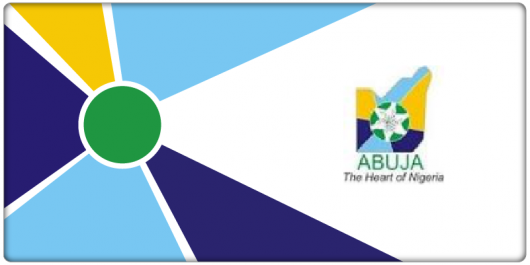How residents performed Eid under lockdown in FCT suburbs
Muslims residing in the suburbs of the Federal Capital Territory (FCT), on Sunday, joined their counterparts in other parts of the country to celebrate the 2020 Eid el-Fitr despite the ban on congregational worship imposed to stem the spread of COVID-19. Eid el-Fitr is an annual prayer observed by Muslims all over the world to […]

Muslims residing in the suburbs of the Federal Capital Territory (FCT), on Sunday, joined their counterparts in other parts of the country to celebrate the 2020 Eid el-Fitr despite the ban on congregational worship imposed to stem the spread of COVID-19.
Eid el-Fitr is an annual prayer observed by Muslims all over the world to mark the completion of Ramadan fasting. It is a two raka’at prayer, which is performed in a congregation at an open ground after the month-long fasting.
However, the 2020 Eid el-Fitr came at a time the world is battling to contain the novel COVID-19 pandemic, with governments all over the world taking far-reaching measures to stem its spread.
Some of the measures adopted by both the federal and state governments in Nigeria include restriction of movement and ban on religious gatherings, which in effect meant Muslims had to celebrate the Eid in unprecedented circumstances.
Since the Federal Capital Territory Administration (FCTA) maintained that the ban on religious congregation subsisted, Muslims were left with no choice than to move to neighbouring states where such ban was lifted ahead of the Eid el-Fitr.
For those who could not go to Eid grounds in nearby states, some clerics made Fatwa (Islamic legal pronouncement) that Muslims could perform the prayers at home with their families as a result of the ban.
The Chief Imam of the Hausa Community in Jikwoyi, Abuja, Mallam Nuraini Badrudeen, explained that the pronouncement to perform the prayers at home was in line with the prophetic order that, “When there is an epidemic, those in the city should not leave and those outside should not enter,” which he said was meant to curb spread.
However, on Eid day, Aso Chronicle observed that some residents of Nyanya, Karu and Jikwoyi defied the ban on inter-state travel and thronged to neighbouring communities of Abacha Road, Mararaba, Anguwan Albarka and Ruga in Nasarawa State to join other Muslims in performing the prayers.
Some of them who spoke to Aso Chronicle expressed discontent over the suspension of the prayers in the FCT and the continued closure of places of worship.
A resident who performed the Eid with his family at KAPDA Mosque, Old Karu Road, Mararaba, Mallam Ibrahim Shu’aibu, said he was not convinced to perform the prayers at home and had to struggle to find an Eid ground to perform the prayers in a congregation.
Shu’aibu said, “I was not convinced with performing the prayer at home, especially that I can locate an Eid ground around; that was why I came out with my family to this community to perform the prayer in a congregation since there is restriction in Abuja communities. We were not happy about suspending this important prayer, but we are happy to have performed the prayer in a congregation here.”
On his part, Mohammed Abba Sanda who performed the Eid prayer at Mararaba, expressed displeasure with the restriction in Abuja, but thanked God for witnessing the annual event.
While commenting on their action, Mallam Badrudeen said they did not commit any offence as far as Islam was concerned, but advised that they should have complied with the restriction to avoid unforeseen consequences.
Badrudeen said, “I cannot say from the Islamic point of view that residents who crossed to Nasarawa communities to perform the prayer have committed any sin, but health wise, they should have prayed at home to avoid consequences of doing so. This is because the country is fighting a pandemic that eyes cannot see.”
Aso Chronicle observed that despite enforcing the compulsory use of facemask at some Eid grounds, the social distancing was not observed, whereas no provision was made for hand washing, sanitiser or temperature check.
Some of the residents, however, complied with the restrictions and prayed at home with their families.
A resident, Musa Yunusa, said he performed the prayer with his family at home as he could not take the risk of going to another state to perform the prayer.
Yunusa said, “We prayed at home with my family. The Eid prayer is not compulsory and clerics have advised us to observe it at home. We complied because we want to be safe. Many people in the community also complied. We know it’s hard, but I believe it was decided for our safety.”
Although residents made preparations such as sewing new clothes and cooking varieties of food, the restriction also crippled the usual sharing of meals and visitations.
Aso Chronicle spoke with some children dressed in their new clothes and they lamented that their parents warned them not to go beyond their community because of the ban.
One of the children, Suleiman, said, “Our parents told us not to leave our community. This is why we cannot visit some places we usually go to during Sallah to collect gifts.”
Aso Chronicle also observed that bikers and a number of vehicles have continued to operate in the suburbs whereas few shops opened as the Sallah day coincided with Sunday; which is also a weekly service day for their Christian counterparts.
